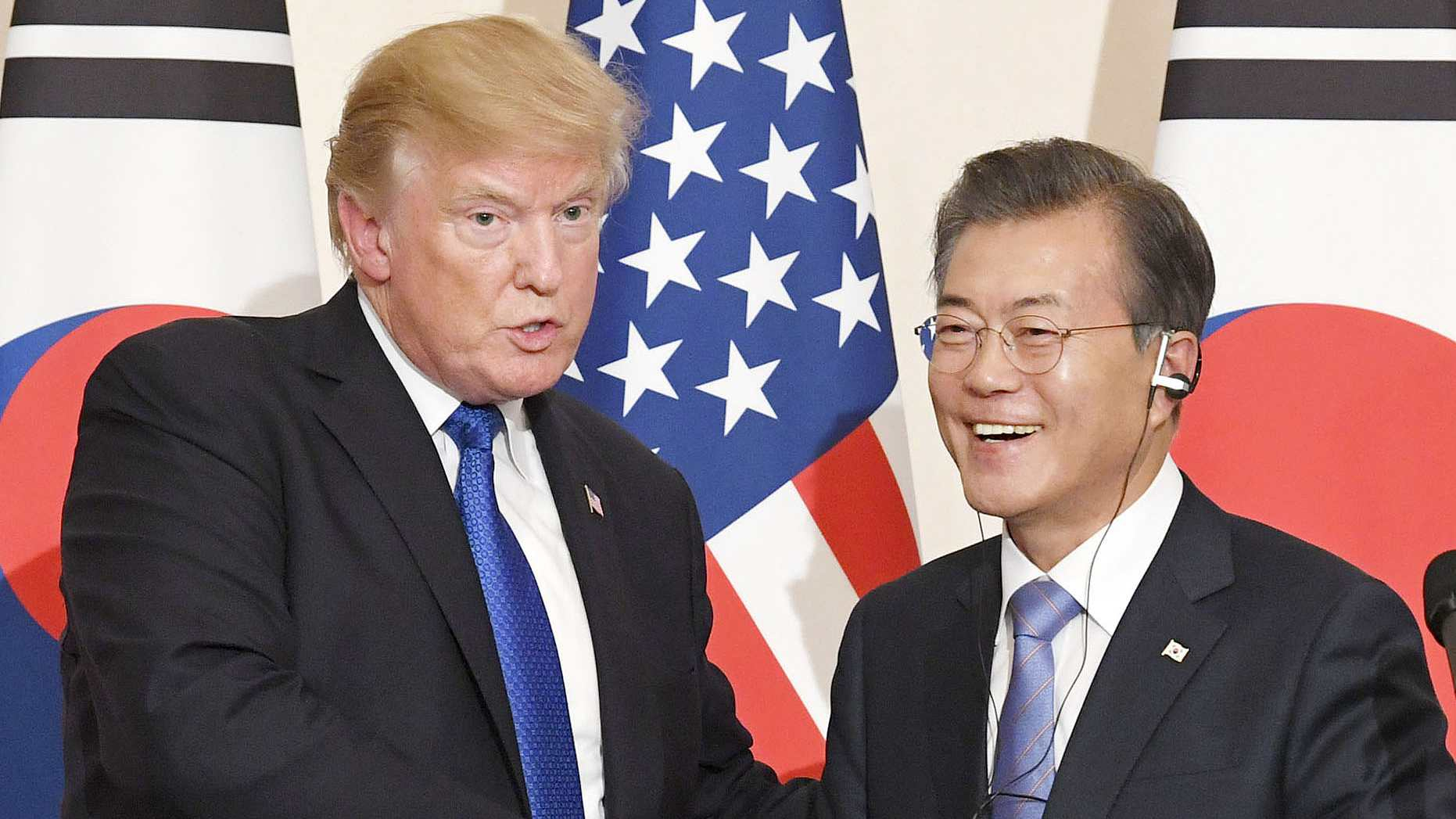Republic of Korea (ROK) President Moon Jae-in headed to the United States on Sunday for a summit on Tuesday with his US counterpart, Donald Trump, with obvious tasks burdened on his shoulders.
"President Moon is set to thoroughly explain the outcome of the third inter-Korean summit (this year) that was held under the interest of the entire world," said Nam Gwan-pyo, a senior director from the ROK presidential National Security Office.
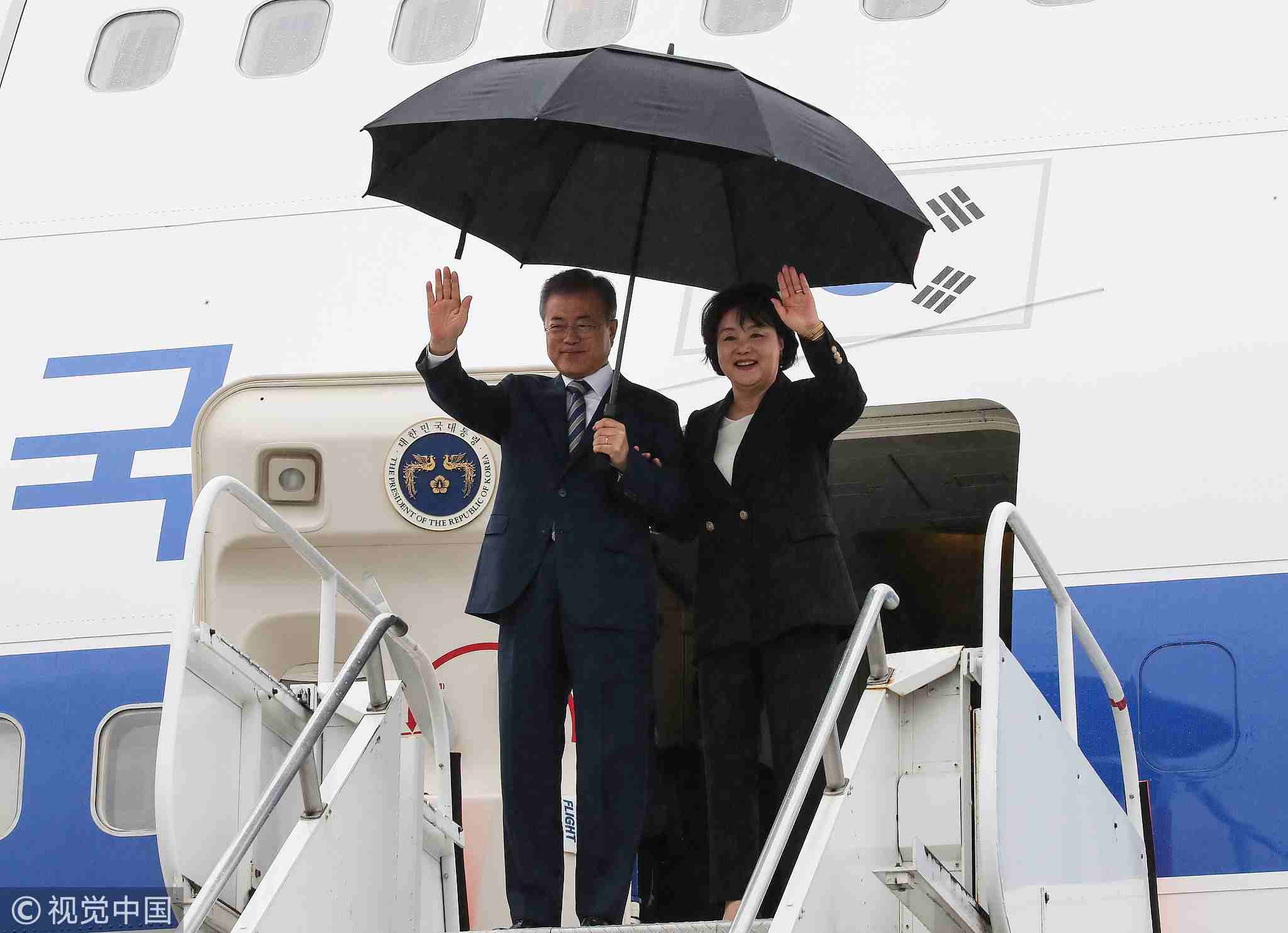
ROK President Moon Jae-in and his wife, Kim Jung-sook, wave to a group of US and ROK officials at the airport in New York, September 23, 2018, for the UN General Assembly. /VCG Photo
ROK President Moon Jae-in and his wife, Kim Jung-sook, wave to a group of US and ROK officials at the airport in New York, September 23, 2018, for the UN General Assembly. /VCG Photo
Moon "will hold in-depth discussions (with Trump) on ways to break the impasse in DPRK-US talks and to improve DPRK-US relations," Nam told reporters earlier.
Moon has been acting as a mediator between Pyongyang and Washington since his first summit with Democratic People's Republic of Korea (DPRK) leader Kim Jong Un in April. Will his mission go smoothly this week?
Why have US-DPRK talks reached an impasse?
Trump and Kim reaffirmed their commitment to denuclearize the Korean Peninsula during their historic June 12 summit in Singapore.
But little progress has been achieved in reaching a peace treaty or specifying the steps toward denuclearization.
Trump canceled Secretary of State Mike Pompeo's trip to the DPRK, just one day after it was announced in late August, saying in a tweet that "we are not making sufficient progress with respect to the denuclearization of the Korean Peninsula."
05:00
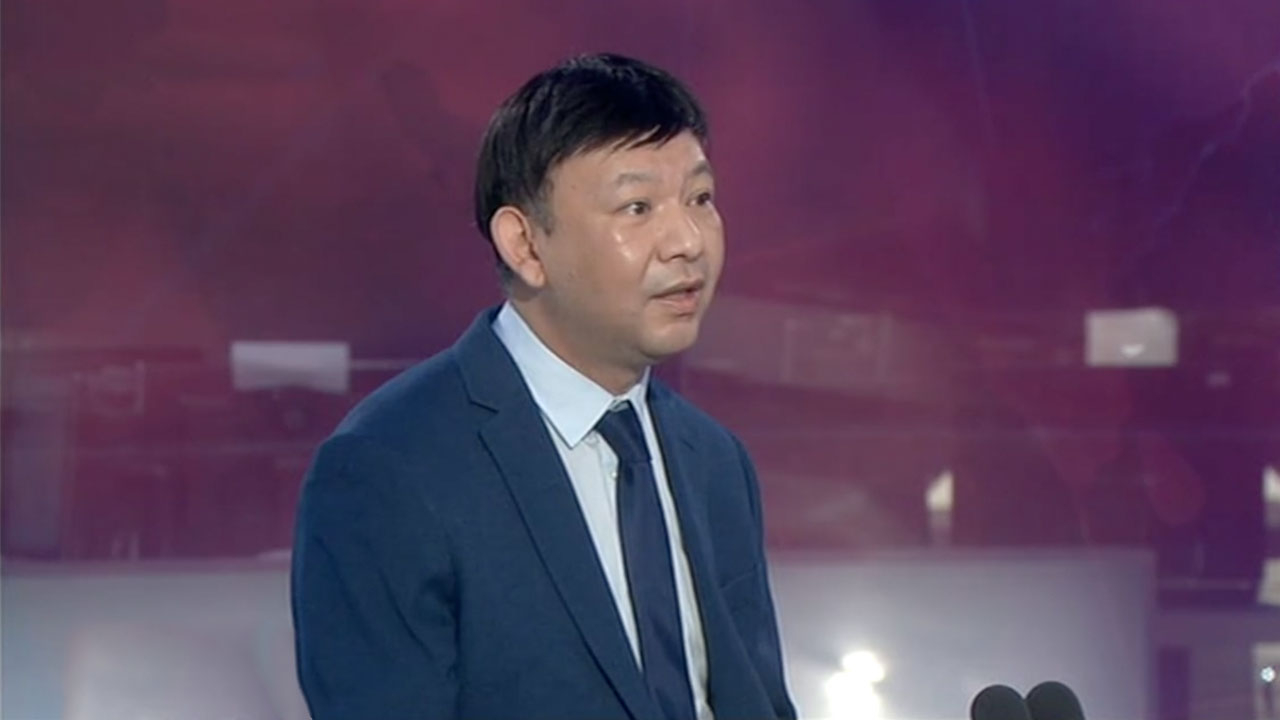
Then Rodong Sinmun, DPRK's official daily newspaper, accused the US of "double-dealing" and "hatching a criminal plot to unleash war on the DRPK," after the cancellation.
Relations between the US and the DPRK, which seemed to have been on the right track after the Trump-Kim summit, suddenly hit an impasse.
The US and the DPRK disagree on what denuclearization means and how to achieve it. Washington insists on the notion of "complete, verifiable and irreversible denuclearization," known as CVID, which was put forward by Pompeo ahead of the Singapore summit. On the other hand, Pyongyang prefers progressive and synchronous measures to realize peace.
Wang Junsheng, an associate research fellow at the National Institute of International Strategy under the Chinese Academy of Social Sciences (CASS), told CGTN that the US demands the DPRK to dismantle its nuclear weapons program, while the DPRK always stresses the "denuclearization of the peninsula," referring to nuclear disarmament by both sides.
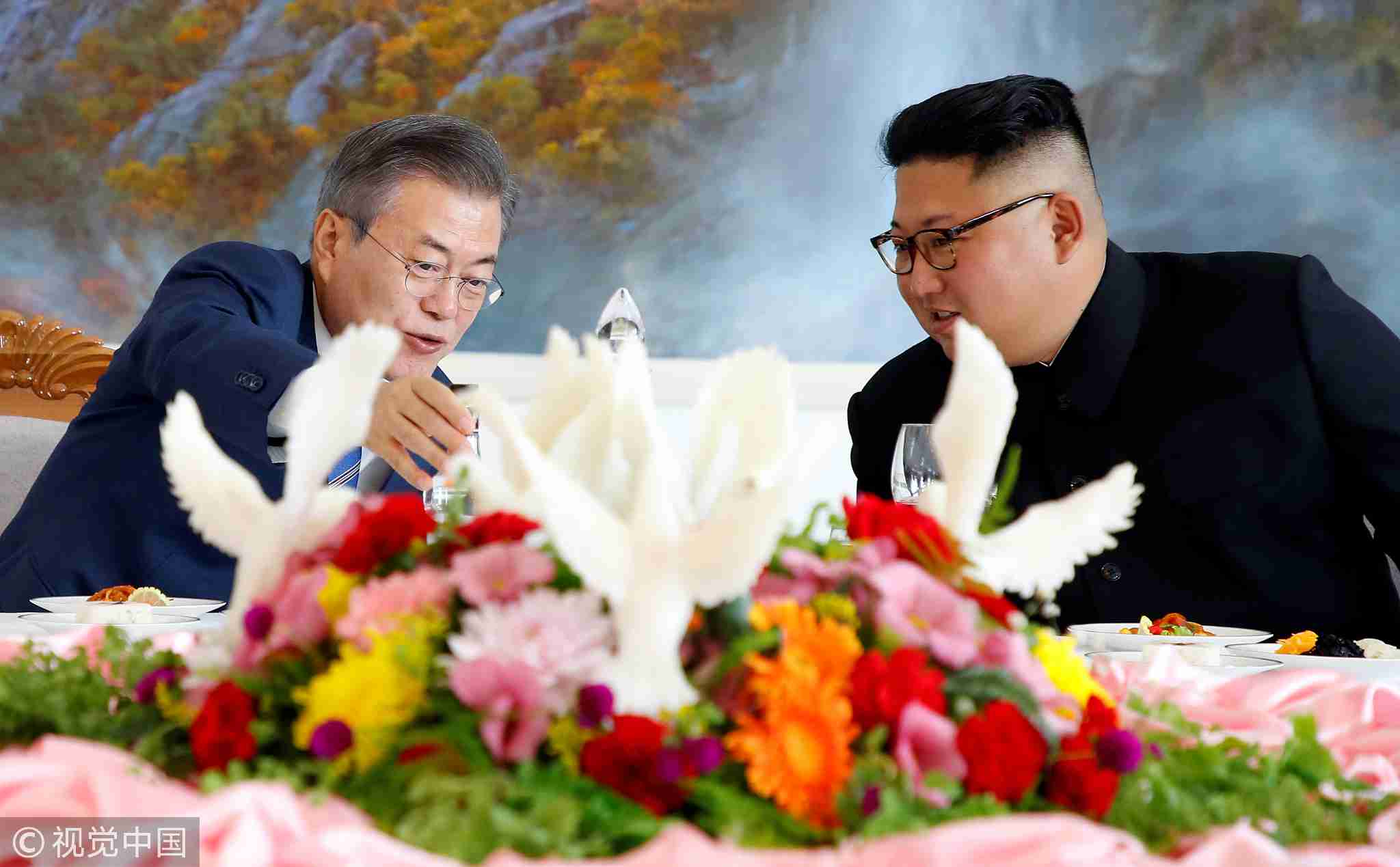
DPRK leader Kim Jong Un (R) and ROK President Moon Jae-in attend a luncheon at Okryu Restaurant (Okryugwan) on the Taedong River in Pyongyang, September 19, 2018. /VCG Photo
DPRK leader Kim Jong Un (R) and ROK President Moon Jae-in attend a luncheon at Okryu Restaurant (Okryugwan) on the Taedong River in Pyongyang, September 19, 2018. /VCG Photo
Moreover, the DPRK seeks the declaration of the end of the 1950-53 Korean War, which concluded in the form of an armistice, not a formal peace treaty. The Blue House said the agreement signed by Moon and Kim at their Pyongyang summit last week
means the de facto end of the war. But it is unclear whether Washington would agree to sign a peace treaty with Pyongyang.
Li Nan, an associate research fellow at the Institute of American Studies under the CASS, commented that "the US will not pass it into law in a short time" and that the US will be "very cautious" on signing a treaty to officially end the Korean War because this may mean the US would have given up the use of force in solving the peninsula issue.
Wang added that the US worries that a declaration to end the war could lead to many problems, such as the DPRK's demand to cancel the ROK-US Combined Forces Command and withdraw the US (US troops) from the ROK.
Why is Moon acting as mediator?
Moon met Kim in April and May this year, which to some extent helped broker the historic Singapore summit in June between Kim and Trump.
Moon's special envoy delegation, which visited the DPRK in March and September respectively, also helped promote the dialogue among the US, the DPRK, and the ROK.
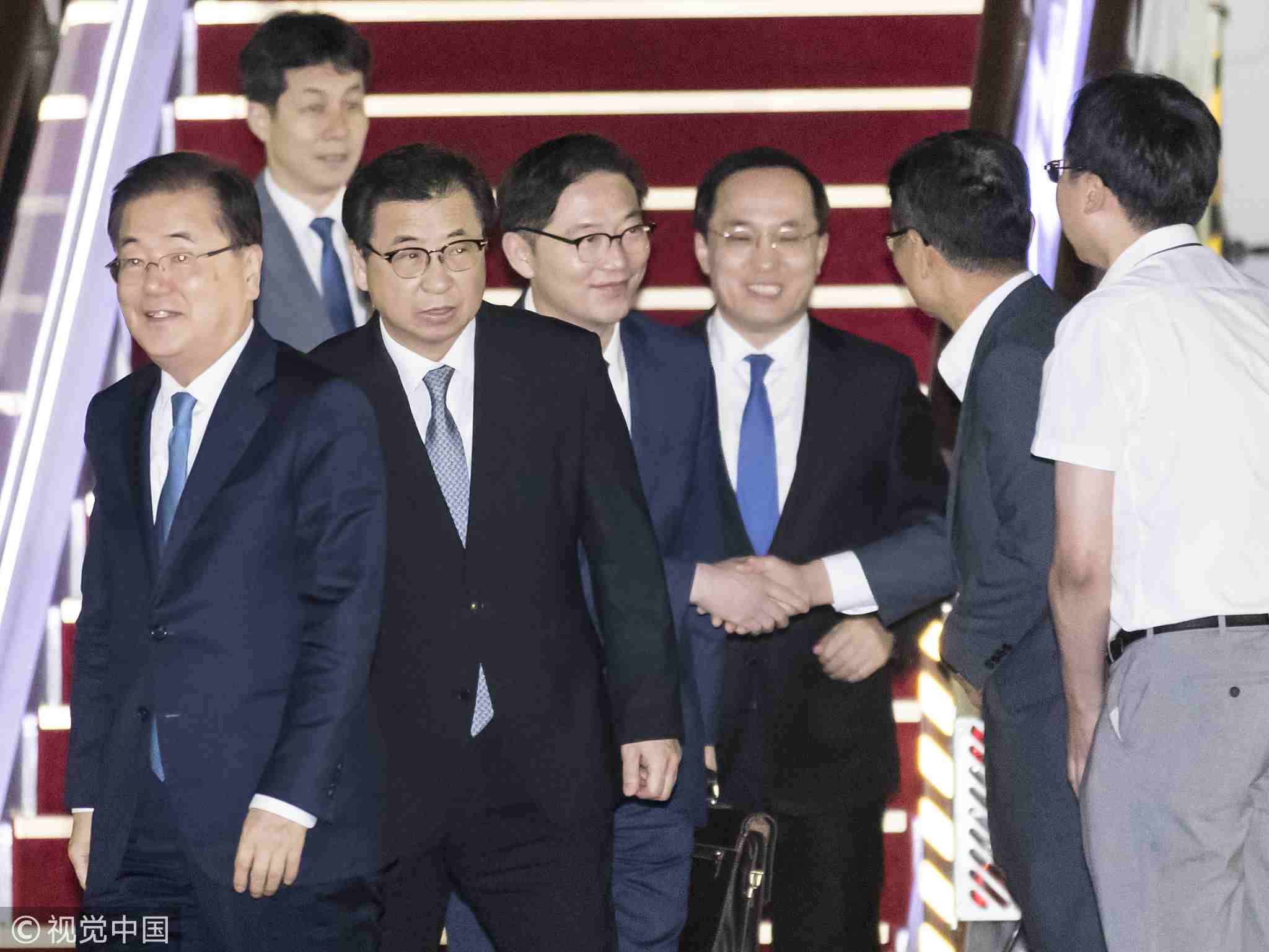
Seoul's special envoy Chung Eui-yong (L) and his delegation members return from their one-day Pyongyang trip through Seoul Air Base, south of Seoul, September. 5, 2018. /VCG Photo
Seoul's special envoy Chung Eui-yong (L) and his delegation members return from their one-day Pyongyang trip through Seoul Air Base, south of Seoul, September. 5, 2018. /VCG Photo
During a telephone call with Moon on September 4, Trump reportedly asked Moon to serve as a "chief negotiator" representing the DPRK and the US.
"But until talks and communication between the DPRK and the US become more active, we cannot but work to mediate between them," Moon told a cabinet meeting on September 11, adding: "President Trump and Chairman Kim have asked that I play this role."
"Giving Moon a win would bolster his position domestically and put pressure on the US to keep moving forward," the BBC reported Andray Abrahamian, from the Griffith Asia Institute, as saying.

Screenshot of US President Donald Trump's tweet
Screenshot of US President Donald Trump's tweet
On the other hand, Moon's personal ties with the DPRK could also be a motive behind his efforts to pursue peace on the peninsula – his parents fled to the ROK from the north during the Korean War.
Moon is eager to mediate between Trump and Kim so as to reduce the risk of war on the Peninsula, Wang explained, adding that he also hopes inter-Korean cooperation will inject new impetus into ROK's economic development.
Why is it so hard for Trump to say 'yes'?
Moon said in a TV address in Seoul after his third summit with Kim that the DPRK leader had expressed his willingness to meet Trump again.
The White House said earlier this month before the third inter-Korean summit that Trump had received a "very positive" letter from Kim seeking a follow-up meeting after their historic summit in Singapore in June.
According to Wang, Moon will make lots of efforts to facilitate the second Trump-Kim summit during his visit to the US.
"The good signal released at the third Kim-Moon summit that the DPRK was willing to '
permanently shut down' the Tongchang-ri missile engine test site with international experts observing makes it possible for the US and the DPRK to resume dialogue," Wang added.
Nevertheless, big gaps on denuclearization still exist between Washington and Pyongyang.
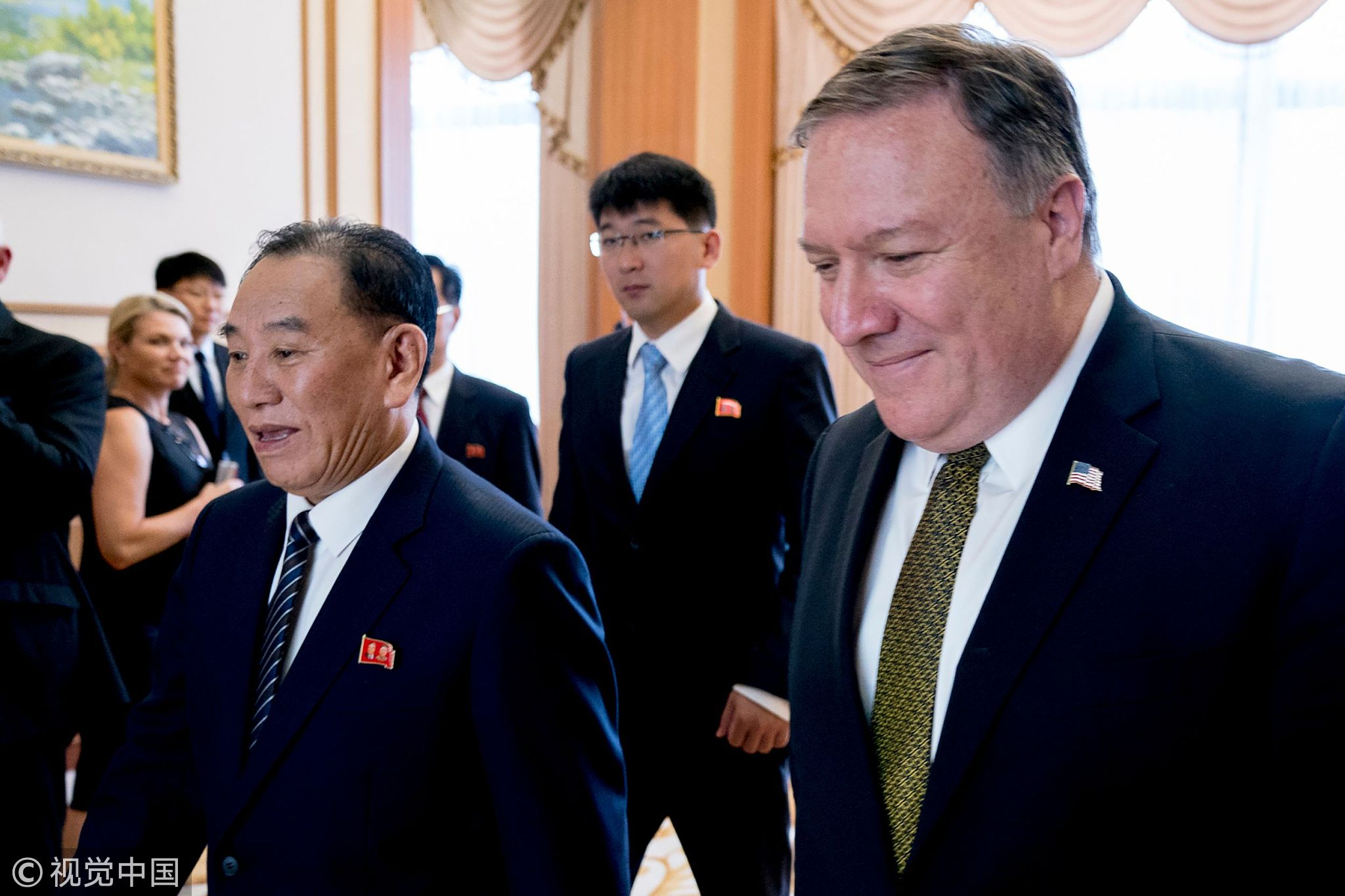
US Secretary of State Mike Pompeo (R) and senior DPRK official Kim Yong Chol (L, front) arrive for a lunch at Park Hwa Guest House in Pyongyang, DPRK, July 7, 2018. /VCG Photo
US Secretary of State Mike Pompeo (R) and senior DPRK official Kim Yong Chol (L, front) arrive for a lunch at Park Hwa Guest House in Pyongyang, DPRK, July 7, 2018. /VCG Photo
Some US officials and analysts say Pyongyang has yet to take concrete measures to show it is prepared to give up a nuclear arsenal that threatens the US.
One US official, speaking on condition of anonymity, said the worry was Trump might offer Kim "too much too soon" to score a win, AFP reported.
Pompeo said in a recent interview that there was still work to do "to make sure conditions are right" for a second Trump-Kim summit and reiterated that sanctions would have to remain on the DPRK until it gives up its nuclear weapons.
The US top diplomat noted that Washington was ready to begin negotiating immediately with Pyongyang to
achieve denuclearization "by January 2021." But Joseph Yun, who retired this year as US envoy on the DPRK, believes that goal is too optimistic.
"No. It's going to take longer than that," he said.
"Let's see what happens," said Trump in his speech in Missouri at a campaign rally on Saturday, adding, "I'm in no rush."
Following their bilateral talks, Moon and Trump are also expected to sign a revision to the ROK-US free trade agreement.

DPRK leader Kim Jong Un (R) walks with US President Donald Trump during a break in talks at their historic US-DPRK summit, at the Capella Hotel on Sentosa island in Singapore, June 11, 2018. /VCG Photo
DPRK leader Kim Jong Un (R) walks with US President Donald Trump during a break in talks at their historic US-DPRK summit, at the Capella Hotel on Sentosa island in Singapore, June 11, 2018. /VCG Photo
The ROK president will deliver a keynote speech at the 73rd session of the UN General Assembly on Wednesday, covering issues such as the outcome of his third summit with Kim, denuclearization of the Korean Peninsula and inter-Korean relations.
He will return home on Thursday.
(Cover: US President Donald Trump and his ROK counterpart Moon Jae-in shake hands after a joint press conference in Seoul, ROK, November 7, 2017. /VCG Photo)

